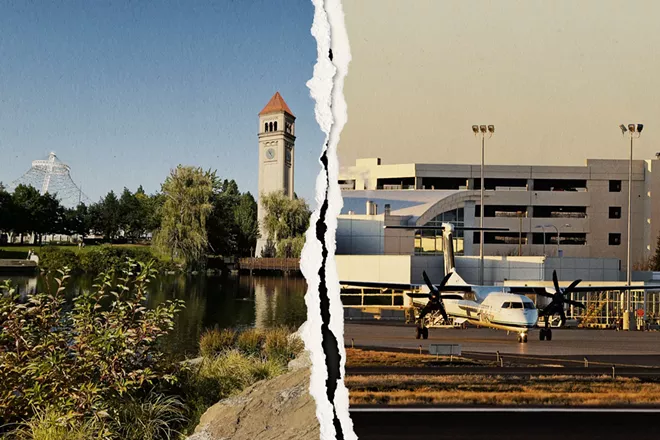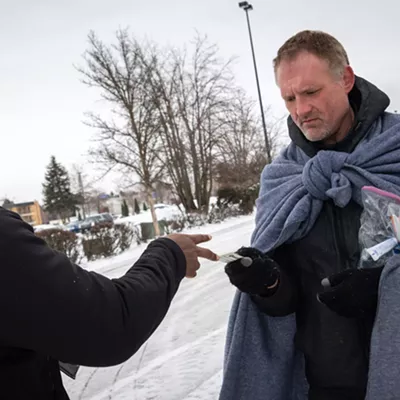
The two of us are far from experts on the topic of homelessness. In fact, our career experiences have not touched on this issue in any significant ways. But our 60-plus years of combined public service do give us some important insights about what works and what doesn't work in local government. Moreover, that experience underlies our strong belief that chronic homelessness in our community can be effectively and affordably managed.
With that in mind, we would like to begin by sharing our thoughts on what a reset and path forward with homelessness could look like. This is the first of two columns we will pen to provide these perspectives based on four key principles: We must correctly define the problem, then depoliticize the issue and determine the appropriate governance structure to own/manage this, and with all that, then develop an integrated strategy the community will support.
CORRECTLY DEFINE THE PROBLEM
This seems so simple yet is so often overlooked. As we have engaged in this issue, we have experienced a lot of folks talking past one another, politicizing their differences and cherry-picking facts and solutions. So let's step back and agree on a few key elements that can help us clarify what problem(s) we are trying to address.
Let's start with a key question: Is this a public housing problem, a public health problem or a public safety problem? Our answer to this question is YES! It is all of these, and if we try to simply address this issue through one tool of housing, or enforcement, or services, we will not succeed. We need an integrated strategy and structure that addresses all three corners of this triangle.
Many times the correct definition of a problem also involves changing the descriptions or terminologies being used. So, question No. 2: Is this a one-time problem that we will fix and move on from, or is this a long-term community issue that will need long-term management?
If it is the latter (which we believe it is), using terms such as "fixing" homelessness or "solving" homelessness do not address the reality or complexity of this issue.
Likewise, we are conflating many things when we define homelessness as "the problem." Homelessness is, in fact, the outcome or result of many problems. When you allow your community to define homelessness as the problem, you encourage binary and polarized thinking. It also creates the illusion of simple solutions, such as "if we just provide enough homes" the problem will go away.
DEPOLITICIZE THE ISSUE
The first step to depoliticizing the issue is agreeing on the correct definition(s) of the problems/issues that need to be addressed. If we can agree that there is not a short-term "fix" to this issue, and that we need to address the three corners of the triangle in an integrated strategic manner, we are much of the way there.
But this also means we need to stop the active campaigning around this issue. And we need to refrain from weaponizing ideological differences, publicly fanning emotional flames and holding dueling press conferences. This only leads to further retribution and divisiveness.
Like most things in local government, this is not a D or an R issue. Government leadership needs to bring the community together on this issue, and they need to start with themselves.
We need to refrain from weaponizing ideological differences, publicly fanning emotional flames and holding dueling press conferences.
DETERMINE THE APPROPRIATE GOVERNANCE STRUCTURE
As we discussed in our past columns, Spokane has a history of doing big innovative things. Spokane's successes around its parks, trails, river, schools, libraries, airport and sports/entertainment facilities didn't happen without the persistence of a number of big-thinking community partners and leaders.
In many of these cases, the key to getting these big initiatives accomplished was to acknowledge that traditional local government (city or county) was not the right place for it to be housed and managed.
For example, we have a separate public entity (the Public Facilities District) that manages our growing convention, entertainment and sports facilities and activities. We have an Airport Board that manages our thriving regional airport. We have separate and unique Park and Library Boards that specialize in bringing those vital services to our citizens.
In each of these important community services, we recognized the need to separate these activities and facilities from the day-to-day responsibilities of traditional local government.
This may be because of the specialized nature of the service. It may be because local government doesn't control the means to deliver the best outcome. It may be because it would be overwhelming for local government to manage, without disrupting its other core services.
For the above reasons, we believe it is important to examine the viability of a separate public corporation or board, charged with managing the three corners of the homelessness triangle.
This doesn't mean that the cities and county wouldn't be critical partners in addressing this community challenge. Much like they do now with Parks, Libraries, the Airport and the Public Facilities District, they will still need to play a critical policy and leadership role. Perhaps the best way to describe this is lead but don't own.
In our next column, we will present an integrated strategy and framework for what this type of governance structure might look like. We will also provide some thoughts around how an integrated community strategy might take shape. Please join us! ♦
Gavin Cooley was Spokane's chief financial officer for 17 years, serving five different mayors, starting with John Powers. He currently is working with the city on projects including investments and the Spokane River Trail System. Rick Romero is the former utilities director and director of strategic planning for the city of Spokane. He worked on a variety of projects, including the renovation of Riverfront Park, the Podium and the downtown Spokane football stadium.



















